La Grande Illusion (also known as The Grand Illusion) is a 1937 French war film directed by Jean Renoir, who co-wrote the screenplay with Charles Spaak. The story concerns class relationships among a small group of French officers who are prisoners of war during World War I and are plotting an escape. The title of the film comes from the book The Great Illusion by British journalist Norman Angell, which argued that war is futile because of the common economic interests of all European nations. The perspective of the film is generously humanistic to its characters of various nationalities.
| La Grande Illusion | |
|---|---|
French film poster | |
| Directed by | Jean Renoir |
| Produced by |
|
| Written by |
|
| Starring |
|
| Music by | Joseph Kosma |
| Cinematography | Christian Matras |
| Edited by | Marthe Huguet Marguerite Renoir |
Production company | Réalisations d'Art Cinématographique (RAC) |
| Distributed by |
|
Release date |
|
Running time | 114 minutes |
| Country | France |
| Language |
|
| Box office | $174,065 (US re-release) |
La Grande Illusion is regarded by critics and film historians as one of the masterpieces of French cinema and among the greatest films ever made. Orson Welles named La Grande Illusion as one of the two movies he would take with him "on the ark." Empire magazine ranked it #35 in "The 100 Best Films Of World Cinema" in 2010.
Screenplay
During the First World War, two French aviators, the aristocratic Captain de Boeldieu (Pierre Fresnay) and the working-class Lieutenant Maréchal (Jean Gabin), set out on a flight to examine the site of a blurred spot found on photographs from an earlier air reconnaissance mission. They are shot down by a German aviator and aristocrat, Rittmeister von Rauffenstein (Erich von Stroheim), and both are taken prisoner by German ground forces. Upon returning to base, Rauffenstein sends a subordinate to find out if the aviators are officers and, if so, to invite them to lunch. During the meal, Rauffenstein and Boeldieu discover they have mutual acquaintances—a depiction of the familiarity, if not solidarity, within the upper classes that crosses national boundaries.
Boeldieu and Maréchal are then taken to a prisoner-of-war camp, where they meet a colorful group of French prisoners and stage a vaudeville-type performance just after the Germans have taken Fort Douaumont in the epic Battle of Verdun. During the performance, word arrives that the French have recaptured the fort. Maréchal interrupts the show, and the French prisoners spontaneously burst into "La Marseillaise". As a result of the disruption, Maréchal is placed in solitary confinement, where he suffers badly from lack of human contact and hunger; the fort changes hands once more while he is imprisoned. Boeldieu and Maréchal also help their fellow prisoners to finish digging an escape tunnel. However, just before it is completed, everyone is transferred to other camps. Because of the language barrier, Maréchal is unable to pass word of the tunnel to an incoming British prisoner.
Boeldieu and Maréchal are moved from camp to camp, finally arriving in Wintersborn, a mountain fortress prison commanded by Rauffenstein, who has been so badly injured in battle that he has been promoted, but given a posting away from the front, much to his regret. Rauffenstein tells them that Wintersborn is escape-proof.
At Wintersborn, the pair are reunited with a fellow prisoner, Rosenthal (Marcel Dalio), from the original camp. Rosenthal is a wealthy French Jew, a naturalized French citizen, the son of a Polish father and a Danish mother, who generously shares the food parcels he receives. Boeldieu comes up with an idea, after carefully observing how the German guards respond to an emergency. He volunteers to distract the guards for the few minutes needed for Maréchal and Rosenthal to escape. After a commotion staged by the prisoners, the guards are ordered to assemble them in the fortress courtyard. During the roll call, it is discovered that Boeldieu is missing. He makes his presence known high up in the fortress, drawing the German guards away in pursuit. Maréchal and Rosenthal take the opportunity to lower themselves from a window by a homemade rope and flee.
Rauffenstein stops the guards from firing at Boeldieu with their rifles and pleads with his fellow aristocrat to give himself up. Boeldieu refuses, and Rauffenstein reluctantly shoots at him with his pistol, aiming for his legs but hitting him in the stomach. Nursed in his final moments by a grieving Rauffenstein, Boeldieu laments that their usefulness to society (as aristocrats) will end with this war. He also pities Rauffenstein, who will have to find a new purpose in the emerging social order.
Maréchal and Rosenthal journey across the German countryside, trying to get to nearby Switzerland. Rosenthal injures his foot, slowing Maréchal down. They quarrel and part, but then Maréchal returns to help his comrade. They take refuge in the modest farmhouse of a German woman, Elsa (Dita Parlo), who has lost her husband at Verdun, along with three brothers, at battles which, with quiet irony, she describes as "our greatest victories." She generously takes them in, and doesn't betray them to a passing German army patrol. Maréchal begins to fall in love with her, and she with him, but he and Rosenthal eventually leave from a sense of duty to the war effort after Rosenthal recovers from his injury. Maréchal declares his intention to come back for Elsa and her daughter, Lotte, after the war.
A German patrol sights the two fugitives crossing a snow-covered valley. The soldiers fire a few rounds, but then the patrol leader orders them to cease fire, saying the pair have crossed into Switzerland. We last glimpse them from a distance, trudging through deep snow, their future uncertain.
- Jean Gabin as Lieutenant Maréchal, a French officer, of modest social background
- Marcel Dalio as Lieutenant Rosenthal, a French officer, of nouveau riche Jewish ancestry
- Pierre Fresnay as Captain de Boeldieu, a French regular officer and aristocrat
- Erich von Stroheim as Captain (later Major) von Rauffenstein, a German regular officer and aristocrat
- Dita Parlo as Elsa, a widowed German farm woman
- Julien Carette as Cartier, the vaudeville performer
- Gaston Modot as an engineer
- Georges Péclet as an officer
- Werner Florian as Sgt. Arthur
- Jean Dasté as a teacher
- Sylvain Itkine as Lieutenant Demolder
According to Renoir's memoirs, Erich von Stroheim, despite having been born in Vienna, Austria (then the Austro-Hungarian Empire) did not speak much German and struggled with learning the language along with his lines in between filming scenes.
The exteriors of "Wintersborn" were filmed at the Upper Koenigsbourg Castle in Alsace. Other exteriors were filmed at the artillery barracks at Colmar (built by Wilhelm II) and at Neuf-Brisach on the Upper Rhine.
An early script version of La Grande Illusion had Rosenthal and Maréchal agreeing to meet in a restaurant at the end of the war. In the final scene, everyone there would be celebrating the armistice, but instead of these men, there would be two empty chairs at a table.
Renoir used the First World War (1914–1918) as a lens through which to examine Europe as it faced the rising spectre of fascism (especially in Nazi Germany) and the impending approach of the Second World War (1939–1945). Renoir's critique of contemporary politics and ideology celebrates the universal humanity that transcends national and racial boundaries and radical nationalism, suggesting that mankind's common experiences should prevail above political division, and its extension: war.
On the message of La Grande Illusion, Renoir himself said, in a film trailer, dating from the re-release of the film in 1958: " a story about human relationships. I am confident that such a question is so important today that if we don’t solve it, we will just have to say ‘goodbye’ to our beautiful world." Despite widespread interest in the subject, Renoir found it difficult to find a producer and distributor, having to "shop around" the project for years.
Class
La Grande Illusion examines the relationships between different social classes in Europe. Two of the main characters, de Boeldieu and von Rauffenstein, are aristocrats. They are represented as cosmopolitan men, educated in many cultures and conversant in several languages. Their level of education and their devotion to social conventions and rituals makes them feel closer to each other than to the lower class of their own nation. They share similar social experiences: dining at Maxim's in Paris, courting dalliances with the same woman, and even know of each other through acquaintances. They converse with each other in heavily formal French and German, and in moments of intimate personal conversation, escape into English as if to hide these comments from their lower class counterparts.
Renoir depicts the rule of the aristocracy in La Grande Illusion as in decline, to be replaced by a new, emerging social order, led by men who were not born to privilege. He emphasizes that their class is no longer an essential component to their respective nation's politics. Both von Rauffenstein and de Boeldieu view their military service as a duty, and see the war as having a purpose; as such, Renoir depicts them as laudable but tragic figures whose world is disappearing and who are trapped in a code of life that is rapidly becoming meaningless. Both are aware that their time is past, but their reaction to this reality diverges: de Boeldieu accepts the fate of the aristocracy as a positive improvement, but von Rauffenstein does not, lamenting what he sarcastically calls the "charming legacy of the French Revolution".
In La Grande Illusion, Renoir contrasts the aristocrats with characters such as Maréchal (Gabin), a mechanic from Paris. The lower class characters have little in common with each other; they have different interests and are not worldly in their views or education. Nonetheless, they have a kinship too, through common sentiment and experience.
Renoir's message is made clear when the aristocratic de Boeldieu sacrifices himself by distracting the prison guards by dancing around, singing, and playing a flute, to allow Maréchal and Rosenthal, members of the lower class, to escape. Reluctantly and strictly out of duty, von Rauffenstein is forced to shoot de Boeldieu, an act that de Boeldieu admits he would have been compelled to do were the circumstances reversed. However, in accepting his inevitable death, de Boeldieu takes comfort in the idea that "For a commoner, dying in a war is a tragedy. But for you and me, it's a good way out", and states that he has pity for von Rauffenstein who will struggle to find a purpose in the new social order of the world where his traditions, experiences, and background are obsolete.
The critique of the romantic idealization of duty in La Grande Illusion is comparable to that in the earlier film All Quiet on the Western Front (1930), based on the novel by Erich Maria Remarque.
Prejudice
In La Grande Illusion, Renoir briefly touches on the question of antisemitism through the character of Rosenthal, a son from a nouveau riche Jewish banking family (a parallel to the Rothschild banking family of France). His biographers believed that Renoir created this character to counter the rising anti-Jewish campaign enacted by Adolf Hitler's government in Nazi Germany. Further, Rosenthal is shown as a symbol of humanity across class lines: though he may be financially wealthy, he shares his food parcels with everyone so that he and his fellow prisoners are well fed—when compared with their German captors. Through the character of Rosenthal, Renoir rebuffs Jewish stereotypes.
There is also a black French officer among the prisoners at Wintersborn who appears to be ignored by the other prisoners, and not accepted as an equal by them. When he speaks to them he is not responded to. For instance, when he shows his artwork, he
Watch movie Grand Illusion Film online on Amazon
Watch movie Grand Illusion Film online
Watch The Movie On PrimeMard Full HD Movie Download
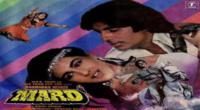
Shradhanjali Full HD Movie Download
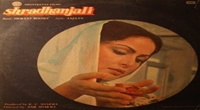
Singapore Full HD Movie Download

chor mandli 2 Full HD Movie Download

Shriman Satyawadi Full HD Movie Download
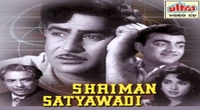
Main Sunder Hoon Full HD Movie Download
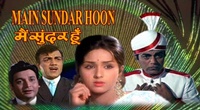
Amar Deep Full HD Movie Download
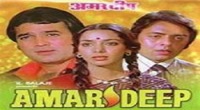
Hoshiyar Full HD Movie Download

Jaal (1986) Full HD Movie Download
.jpg)
Hum Dono (1995) Full HD Movie Download
.jpg)
Woh Kaun Thi (1964) Full HD Movie Download
.jpg)
Dharmapatni Full HD Movie Download

Adirindi Gurui Full HD Movie Download
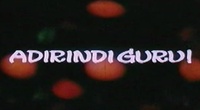
Sruthilayalu Full HD Movie Download

Khaidi Inspector Full HD Movie Download
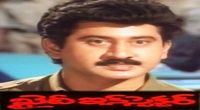
Mazhe Saubhagya Full HD Movie Download
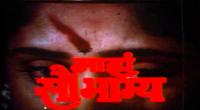
Oka Chinna Maata Full HD Movie Download

Sree Lekha Full HD Movie Download
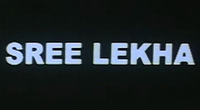
Aar Paar Full HD Movie Download
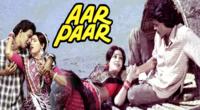
Mastan (Bengali) Full HD Movie Download
.jpg)
Maine Gandhi Ko Nahin Mara Full HD Movie Download
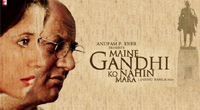
Download latest Movie from bollywood
- 1> baaghi 3
- 2> THE SKY IS PINK MOVIE FULL STORY AND REVIEW
- 3> Luka Chuppi
- 4> TO ALL THE BOYS I’VE LOVED BEFORE
- 5> Kabir Singh
- 6> Street Dancer 3D
- 7> Simmba
- 8> Gone Girl
- 9> The Girl Who Lived
- 10> Ludo
- 11> DILWALE DULHANIA LE JAYENGE
- 12> GUILTY
- 13> The Godfather
- 14> Adventures of Rusty
- 15> Sooryavanshi
- 16> Satyameva Jayate 2
- 17> Thappad
- 18> Bhool Bhulaiyaa 2
- 19> KGFChapter 2
- 20> Mardaani 2
- 21> Pinjar
- 22> Shivaji maharaj
- 23> Ek Villian 2
- 24> Hungama 2
- 25> Divergent
- 26> Mumbai Saga
- 27> The Internship
- 28> HIT (telugu)
- 29> Panga
- 30> The perfect date
- 31> 16 December
- 32> Gopala Gopala (Telugu)
- 33> Brahmastra
- 34> Gangubai Kathiawadi
- 35> Manmadhudu
- 36> Nenu local
- 37> Mahanati
- 38> Shatamanam bavathi
- 39> Lagaan
- 40> After
- 41> MOM
- 42> Shamshera
- 43> Raguvaran BTech
- 44> Khakee
- 45> The villain
- 46> OM
- 47> Mr. perfect
- 48> Bueatifull mind
- 49> Hichki
- 50> Gabbar Singh
- 51> Jogi
- 52> Before Sunrise
- 53> Before Sunset
- 54> Before Midnight
- 55> The Big Bull
- 56> Top Gun: Maverick
- 57> The Purge
- 58> The Sky is Pink
- 59> Laxmmi Bomb
- 60> Sadak 2
- 61> Sufna
- 62> Prithviraj
- 63> PK
- 64> Coolie No 1(2020)
- 65> Black Widow
- 66> Dear Zindagi
- 67> Dil Bechara
- 68> PHIR HERA PHERI
- 69> WAR
- 70> Dostana
- 71> RRR: Roudram Ranam Rudhiram
- 72> Maidan
- 73> Dabbang 3
- 74> Chhalaang
- 75> life as we know it
- 76> SherShaah
- 77> Sandeep Aur Pinky Faraar
- 78> Event Horizon
- 79> 83
- 80> Radhe: Your Most Wanted Bhai
- 81> Gunjan Saxena: The Kargil Girl
- 82> Mr India
- 83> Vivah
- 84> Anokha Bandhan
- 85> Ghost
- 86> Bhoot: Part One - The Haunted Ship
- 87> Haseen Dilruba
- 88> Laal Singh Chaddha
- 89> Qismat
- 90> Rajput
- 91> Drive
- 92> Dil Chahta Hai
- 93> Dil Ki Baazi
- 94> Dil Ka Rishta
- 95> Teesri Manzil
- 96> Dil
- 97> Love Aaj Kal
- 98> Khaali Peeli
- 99> Bunty Aur Babli 2
- 100> Atrangi Re
- 101> Gulabo Sitabo
- 102> Jodi
- 103> Suraj Pe Mangal Bhari
- 104> Deewana
- 105> Attack
- 106> Sardar Udham Singh
- 107> Toofan
- 108> THE LOVEBIRDS
- 109> Jersey
- 110> Ginny Weds Sunny
- 111> Thalaivi
- 112> Shiddat
- 113> Angels vs Zombies
- 114> Koi Mil Gya
- 115> Thank God
- 116> Bhuj: The Pride of India
- 117> Hum Aapke Hain Kaun
- 118> The Platform
- 119> Bird Box
- 120> Roohi Afzana
- 121> Torbaaz
- 122> Nikamma
- 123> World War Z
- 124> Extraction
- 125> Train to Busan
- 126> Life of Pi
- 127> SHAADI MEIN JROOR AANA
- 128> Himmat Aur Mehnat
- 129> To All The Boys: P.S. I Still Love You
- 130> Mimi
- 131> Good Newwz
- 132> Shubh Mangal Zyada Saavdhan
- 133> Raabta
- 134> Harry Potter and the Philosopher's Stone
- 135> Harry Potter and the Chamber of Secrets
- 136> Chhapaak
- 137> War of the Worlds
- 138> Harry Potter and the Prisoner of Azkaban
- 139> Harry Potter and the Goblet of Fire
- 140> MURDER MYSTERY
- 141> Shakuntala Devi
- 142> Bachchan Pandey
- 143> Jayeshbhai Jordar
- 144> Sheer Qorma
- 145> Saina
- 146> 'O' Pushpa I hate tears
- 147> Kedarnath
- 148> MS Dhoni The Untold Story
- 149> Chhichhore
- 150> Badhaai Ho
- 151> Unstoppable
- 152> Oz the Great And Powerful
- 153> The Girl on the Train
- 154> Haathi Mere Saathi 2020
- 155> The Conjuring: The Devil Made Me Do It
- 156> Gandhi Se Pehle Gandhi
- 157> The Song of Scorpions
- 158> Srimanthudu
- 159> Hello Guru Prema Kosame
- 160> Beauty and The Beast
- 161> Black Panther
- 162> Charlie and the Chocolate Factory
- 163> Bole Chudiyan
- 164> Fidaa
- 165> Duvvada Jagannadham
- 166> Bruce Lee: The Fighter
- 167> Hyper
- 168> Yaara
- 169> Red (2020)
- 170> Shivam
- 171> That Is Mahalakshmi
- 172> Nishabdham
- 173> Aashram 2020 web series
- 174> Laxmii
- 175> Mismatched
- 176> STUDENT OF THE YEAR 2
- 177> NAIL POLISH
- 178> Ramprasad Ki Tehrvi
- 179> KAAGAZ
- 180> 12 o Clock
- 181> The Power
- 182> bolo hau
- 183> Tribhanga
- 184> JAMUN
- 185> Madam Chief Minister
- 186> Maasaab
- 187> Aadhaar
- 188> Tanhaji
- 189> Bhaagi 3
- 190> Bhootnath
- 191> MALANG
- 192> Jai Mummy Di
- 193> Haathi Mere Saathi 2021
- 194> Shakeela
- 195> Unpaused
- 196> Annayya
- 197> Vamsoddharakudu
- 198> Mrugaraju
- 199> Narasimha Naidu
- 200> Sankranti
- 201> Manasu Maata Vinadhu
- 202> Anjaane
- 203> Apaharan
- 204> Bachke Rehna Re Baba
- 205> Bewafaa
- 206> Roohi
- 207> Radhe
- 208> Zindagi Khoobsoorat Hai
- 209> Yeh Mohabbat Hai
- 210> Yeh Kya Ho Raha Hai?
- 211> The Tomorrow War
- 212> DehradunDiary
- 213> Meri Shaadi Karaoo
- 214> Matruu Ki Bijlee Ka Mandola
- 215> No One Killed Jesica
- 216> Aag Ka Goola
- 217> Eight Million Dollars
- 218> Three Hundred
- 219> Cats and Dog
- 220> Decoy
- 221> Gold Rush
- 222> You Have Got Mail
- 223> Final Destination three
- 224> Tofan
- 225> Jungle
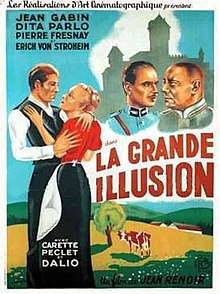 Story of movie Grand Illusion Film :
Story of movie Grand Illusion Film : 